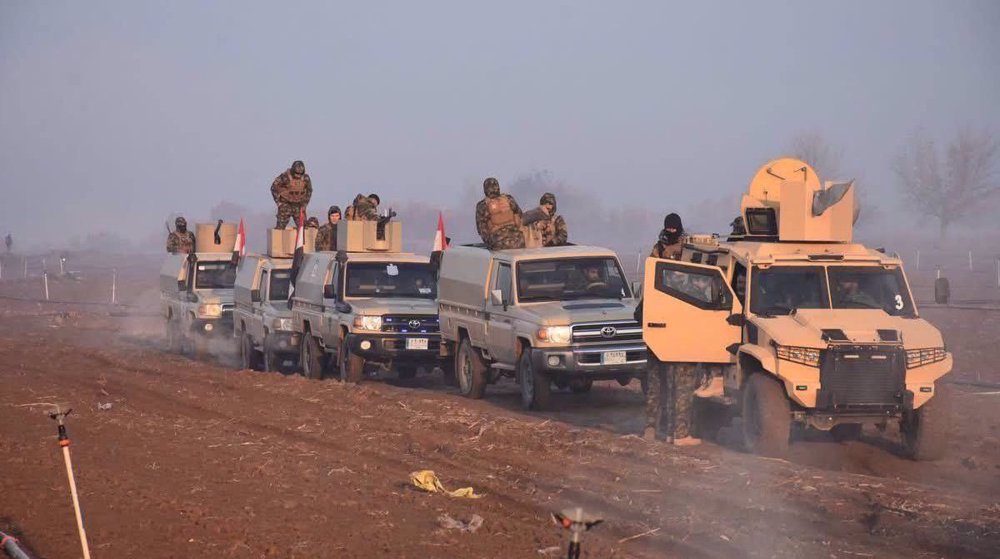Daesh bomb blast kills at least 12 civilians in Iraq's Mosul
At least a dozen of people have lost their lives after a suspected member of the Takfiri Daesh terrorist group blew himself up among Iraqi civilians fleeing the Old City of Mosul, as the terror group is drawing its last breaths in the embattled northern city.
"We received 12 people killed and more than 20 wounded in our field hospital, including women and children," Ahmed Hashem, a medical official from a nearby field hospital, said on Friday.
The carnage came as more than 90 percent of the once militant-held city has been liberated from the clutches of the terror group and streams of civilians are currently fleeing the newly freed parts under the protection of Iraqi troops.

On Wednesday, Daesh also blew up Mosul’s 800-year-old Grand al-Nuri Mosque, where the terrorist group’s leader Abu Bakr al-Baghdadi announced the formation of a so-called caliphate after capturing the city in 2014 and declared the ill-fated city as the group's de facto capital in the Arab country. The mosque's iconic ancient leaning minaret was also destroyed in the bombing.
Shortly after the destruction of the iconic mosque, Iraqi Prime Minister Haider al-Abadi described the event as Daesh's "official declaration of defeat."
Read more:
Military officials say that some 8,000 people have so far managed to flee the Old City since Iraqi forces launched a new wave of attacks on the remaining militant-held patches of Mosul on June 18.
They also say some 100,000 more people are estimated to have been trapped by terrorists, who have made human shields a key element in their fierce but desperate fight in their last remaining stronghold. Old Mosul's narrow and maze-like streets, where army tanks and heavy vehicles are incapable of passing through, have made the liberation process slower than expected.

Iraqi army soldiers and volunteer fighters from the Popular Mobilization Units, commonly known by their Arabic name, Hashd al-Sha’abi, have made sweeping gains against Daesh since launching the Mosul operation on October 17, 2016.
The Iraqi forces took control of eastern Mosul in January after 100 days of fighting, and launched the battle in the west, separated from the east by the Tigris River, on February 19.
An estimated 862,000 people have been displaced from Mosul the past nine months. A total of 195,000 civilians have also returned, mainly to the liberated areas of eastern Mosul.
‘Christ under rubble’: Christians in Gaza mark another Christmas amid genocide
Iran’s president extends condolences to Azerbaijan’s Aliyev over plane crash
VIDEO | Press TV's news headlines
Iran says Christmas opportunity to remind ourselves of Jesus Christ call for 'justice, peace'
VIDEO | Eyewitness video shows moment of plane crash in Kazakhstan
VIDEO | Lebanese Christians celebrate Christmas over ruins
Iran FM: ‘Too early’ to predict Syria’s future for those thinking ‘victories’ achieved
The big role of steel industry in Iran’s development













 This makes it easy to access the Press TV website
This makes it easy to access the Press TV website